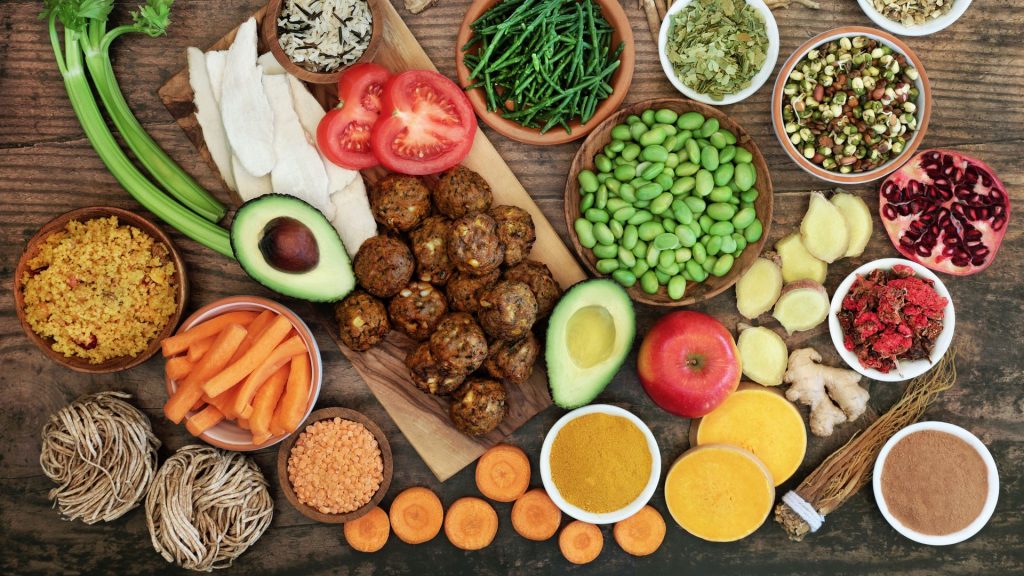That anticipated cup of coffee following Fajr prayer. That juicy hamburger at lunch, followed by that savory chocolate cake to top it off.
Muslims will have to do without all of these things while fasting during the upcoming month of Ramadan.
However, if you properly prepare your body for what promises to be a long and sweltering month for Muslims worldwide, hunger pains will be the least of what you will be dealing with.
As Ramadan approaches, focusing on the spiritual blessings of this ninth month of the Islamic calendar should be the first priority for those observing the fast.
By easing into the fast and making small changes now, you’ll increase your chances of avoiding the otherwise inevitable symptoms that come with significantly decreasing food intake, including headaches, migraines, and stomach aches.
With those worries out of the way, reading Quran, praying Taraweeh, practicing good deeds, and seeking Allah’s mercy and pleasure will become much easier and, as the Prophet Muhammad (may Allah’s peace and blessings be upon him) said, will bring more rewards and forgiveness of sins.
Practical Steps to Prepare for Fasting
Abu Huraira related that the Prophet (PBUH) said:
“Allah the Majestic and Exalted said: Every deed of man will receive 10 to 700 times reward, except siyam (fasting), for it is for Me and I shall reward it (as I like).” (Muslim)
Abu Huraira also related that the Prophet (PBUH) said:
“Whoever fasts during Ramadan with faith and seeking his reward with Allah will have his past sins forgiven.” (Bukhari, Muslim)
With those hadiths in mind, ensuring your body is prepped for a successful fast is essential.
The first step is to practice going to sleep earlier at night. With Fajr beginning at 5 a.m. and earlier in many parts of the world, ensuring that you don’t sleep through your alarm will be better served by sleeping early the night before.
Aim to pray Isha’a as soon as it is called and go to bed soon after that.
This way, you’ll have time to wake before Fajr and have something to eat before praying and returning to bed.
A healthy and filling suhoor, particularly one that packs a hefty protein punch like eggs, will go a long way toward getting you through the long day comfortably. And of course, don’t forget to drink an appropriate amount of water.
Staying hydrated is crucial to fasting in hot weather. The Prophet (may Allah’s peace and blessings be upon him) himself stressed the importance of eating suhoor.
“Have suhoor, as indeed there is a blessing in it.” (Bukhari, Muslim)
He also said,
“The difference between our fasting and the fasting of the People of the Book is the (meal of) suhoor.” (Muslim)
Of course, what you eat and what you start cutting back on now will make a difference in how easily you slip into fasting.
One of the biggest culprits for a difficult transition into fasting is waiting until the first day of Ramadan to cut out all caffeine. This practice is sure to lead to a pounding headache or even a migraine long before Maghrib time.
And with so many Muslims regularly enjoying coffee and tea as part of their daily routines, scaling back now is prudent.

To do this, try cutting your morning cup of coffee in half, or if you enjoy two cups, make it only one. If you regularly take tea in the early afternoon or later in the day, decrease the amount by one cup.
Put both of these changes into practice for at least a week, then take it down even more until, by the start of Ramadan, you’re essentially caffeine-free during the daylight hours.
Of course, this same strategy also applies to sodas, which should be limited in general if consumed at all.
Reduce Your Food and Stay Fit!
Now let’s talk food.
The same principal applies to food when it comes to cutting back slowly.
Maybe eat one small bowl of cereal in the morning instead of a larger portion. Or simply leave second servings of dinner on the stove rather than piling them on your plate.
You’ll eat less and have leftovers for a quick lunch the next day.
Also, try to resist eating a large meal the night before Ramadan begins.
Remember, you’re not only training your body to function comfortably on less food. You’re also signaling your mind and your appetite that the fast is approaching.
Paying attention to what you eat is just as important as how much you eat.

Muslims should work to wean their bodies off heavy, not to mention unhealthy, foods like fried foods, meats, salt, and sugar.
All of these foods, particularly sugar and salt, trigger reactions in the body, which can make cravings even harder to fight.
Once you eat that first piece of cake or pop those first few potato chips in your mouth, you’ll find it much more difficult to stop than if you hadn’t eaten any in the first place.
Instead, think about reaching for more plant-based foods when planning meals and snacks.
A wide variety of vegetables, fruits, and nuts in addition to fish and whole-grain breads are good options. They are filling, but still feel light in the stomach and assist the body in breaking the habit of needing heavier food to feel satisfied.
Modify Your Excercise Routine
But preparing for Ramadan is not all about limiting certain foods and eating smaller meals; it’s also about modifying your exercise routine.
It’s true that fasting slows the metabolism, making it harder to keep fit and burn calories at your usual level. To combat that, gentle exercise is recommended during Ramadan.

Great options include moderate walking shortly before breaking the fast, ensuring you won’t go too long without water. Swimming and yoga are other good options. And of course, stretching regularly, particularly in the morning, is important for keeping the body limber.
Finally, any light exercise you can accomplish while fasting will help keep your energy up when it’s likely lagging as the clock moves closer and closer to Maghrib.
The article is from the archives.


